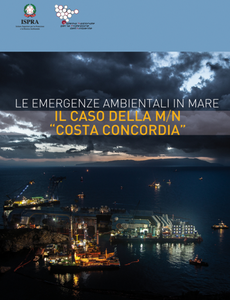Environmental emergencies at sea: the case of the M/N "Costa Concordia"
An environmental emergency at sea occurs when an event such a spill, accidental or deliberate, determines, in matrices such as biota, sediments, water and atmosphere, conditions that threaten the integrity of the marine ecosystems involved and require urgent response to be tackled.
The sinking of the cruise ship "Costa Concordia", which took place on January 13, 2012 off the Giglio island (Tuscany), also led to a remarkable environmental emergency with a worldwide echo.
Set sail from the Civitavecchia harbour towards Savona, the large ship, following a incautious manoeuvre to approach the coast of Giglio Island (the so-called “inchino”), at 21:45 hit at high speed a submerged rocks called " Le Scole ”, 90 meters from the coast and 8 meters deep. Immediately, response carried out by Institutions involved in emergency management, with the coordination of Italian Civil Protection take into account several topics to be tackle as soon as possible, like: avoid the sinking of wreck on deeper seafloor; avoid spill of heavy fuel oil, providing his recovery; carry out a safety removal of wreck; provide a clean up and restauration of seafloor, considering as a priority environmental protection and minimisation of environmental damages..
This volume outlines, in particular, the activities that the researchers, technologists and technicians of ISPRA/SNPA supported in the management of the "Concordia" emergency and highlights the environmental controls carried out as well as the advices and indications provided by them to the institutions responsible for coordinating the interventions, to reduce, as far as possible, the environmental consequences of the shipwrecking.
Download the publication (pdf 24 mb)

